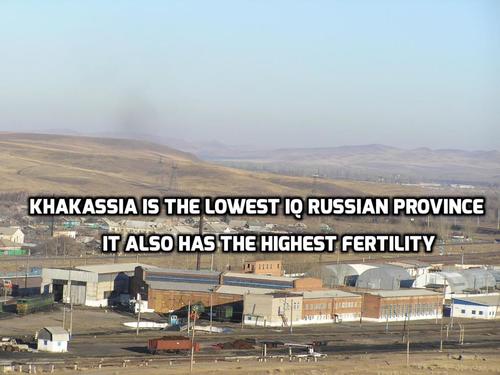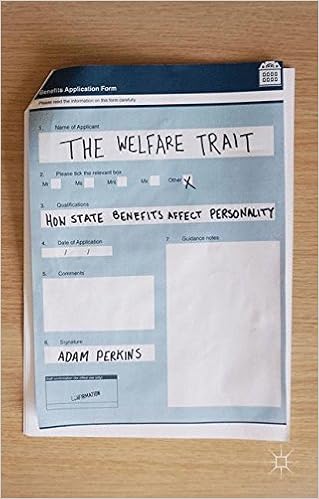
Russia’s Intelligence (No, Not That Kind!) Is Declining — But Not As Fast As The West’s
By Lance Welton
07/21/2018

VDARE.com’s John Derbyshire recently expressed puzzlement over American Ruling Class Russophobia, arguing that the country is a “economic nonentity” with a population that is “increasingly composed of aging drunks.” Maybe so, but in at least one alarming respect Russia may be converging with the West.
In recent months, the MSM have been reporting research that has found that IQ scores in developed countries have been getting worse and worse [Young people ARE getting more stupid, By Isabella Fish, Mail Online, June 12, 2018 ]. So overwhelming has the proof for intelligence decline become that it’s now being explored even by “mainstream” academics, with no connection to British psychologist Michael Woodley of Menie, whose research demonstrating the collapse has been termed the “Woodley Effect” [The Woodley Effect, By James Thompson, Unz Review, February 11, 2017,], with the mass of evidence for it soon to be presented in a full length book [At Our Wits’ End: Why We’re Becoming Less Intelligent and What It Means for the Future, by Edward Dutton and Michael Woodley of Menie, Imprint Academic, 2018].
However, most of these studies show that intelligence is declining in stable Western countries. What if people were also getting dumber in an autocracy with almost no history of democracy plus expansionist ambitions and enormous stockpiles of nuclear weapons? And what if they were getting dumber far more slowly than the West?
This is exactly what’s happening. It’s happening in Putin’s Russia.
Russian psychologist Ekaterina Chmykhova, of the Modern University for Humanities in Moscow, and her team [Dysgenic fertility in the Russian Federation,By Ekaterina Chmykhova et al., Mankind Quarterly, 2016] have found that the rather paranoid people who brought us the October Revolution and Stalin are going to be getting more prone to dictatorship, which is predicted by national low IQ. [Intelligence, By Richard Lynn & Tatu Vanhanen, Ulster Institute for Social Research, 2012] But will likely soon become smarter than the democratic Westerners.

A total of 465 psychologists at 47 regional branches of Russia’s Modern University for the Humanities were despatched to test representative samples for each region aged between 17 and 50. The psychologists were tasked with administering to them the Standard Progressive Matrices (“SPM”). Widely acknowledge to be a highly reliable IQ test, this presents people with sequences of shapes (like the one at right) and asks them to discern the pattern which the sequence is following. This was possible in 29 Russian provinces, giving the team a sample of 4,645 Russians. The researchers also obtained average completed fertility and birth rate data by province from the Russian Federal State Statistics Service.
The result? The “glupyy” (Russian for “stupid”) will inherit the Russian Federation. The correlation between a province’s average IQ score and its average completed fertility (number of children among the middle-aged, who are unlikely to have any more) was -0.49, while the relationship with birth rate (how many children are born to each person) was -0.57.
In social science these are strong correlations and they are statistically significant, meaning they are definitely not a fluke.
By far the lowest average SPM score was in the province of Khakassia, in the central south of the country. This boasted (again, by some margin) the highest average fertility and birth rate.

In contrast, fertility was low and IQ scores high, in the northern parts of the country, such as Karelia. This would be in line with British psychologist Richard Lynn’s “Cold Winters Theory” — that colder climes select for higher IQ, due to the need to built complex shelters and plan for more for the future [Intelligence, By Lynn & Vanhanen, Chapter 13].
These results are of crucial importance because intelligence is about 80% genetic [Dysgenics, By Richard Lynn, p.101] which means that if the less intelligent have the most children, Russia will pass to the less intelligent, with higher intelligence dying out.
With those aged between 40 and 50, who were unlikely to have any more children, Chymkhova’s team conducted individual surveys regarding how many children each had. This revealed something quite eye-opening — and different from what you tend to see in the West.
In the West, there is a broadly linear relationship between IQ and fertility, in the “normal” range (i.e not including the mentally retarded, who don’t tend to have children)
However, this is not the case in Russia. Among families with one or two children, there is no relationship between IQ and fertility. This negative relationship only hits in when it comes to larger families, with 3 or 4 children. And Russian women with no children by the age of 40-50 are less intelligent than those who have 1 or 2.

Also, studies in the West have shown that dysgenic fertility is greater among women than men [e.g. Effects of sex, race, ethnicity and marital status on the relationship between intelligence and fertility, By Gerhard Meisenberg, Mankind Quarterly, 2010]. This is seemingly because feminism persuades cleverer women to delay and limit their fertility by dedicating their 20s, and even the first half of their 30s, to their careers. Also, the welfare system — with its lavish child benefit — in Western countries has been proven to positively encourage low IQ, unemployed, single mothers to have lots of children, with only those on welfare, in the UK, breeding at above replacement fertility level [The Welfare Trait: How State Benefits Affect Personality, By Adam Perkins, Palgrave Macmillan, 2016].
In Russia, in stark contrast, dysgenic fertility can only be found among men — and even there it’s not very substantial. Intelligent Russian women, apparently under less influence from ideologies such as feminism, atheism, and Leftism, want to have children and succeed in doing so in a way that their equally intelligent Western sisters do not.
Also, Russians are poorer than Westerners, and lower living standards — which expose people to greater instability and mortality salience — seem paradoxically to persuade them to have more children and have them younger, to be on the safe side [The Welfare Trait, op. cit.]. And ideologies such as nationalism or religion tend to promote fertility: think Hitler’s medals for fertile mothers or the Catholic ban on contraception.
This decline will naturally result in Russia becoming less stable and more authoritarian, since Lymm and Vanhanen also showed that authoritarianism correlates with lower IQ. But although Russia’s IQ is decreasing, there is a further complication for the West. Russian average IQ is only about 4 points lower than the typical Western IQ of 100, and so on a par with Italy [Lynn & Vanhanen, op. cit.]. And its average IQ is declining much more slowly than the West’s. Chymkhova’s researchers have calculated that the genotypic Russian IQ is declining by 0.44 points per generation (defined as 25 years). By contrast, drawing upon Western studies, Richard Lynn showed in Dysgenics that genotypic IQ is declining at a rate of 1.29 points per generation [Dysgenics, p.286].
Put simply, Russian IQ is falling, but it is falling at about half the rate ours is. What this means: before long, a country that, for whatever environmental reason, has never been particularly interested in democracy or freedom of expression and has a long and continuing record of expansionism, will have higher average IQ than the West — which will still have this cultural legacy of democracy even if its IQ will have declined.
The likely result of this, for the West, is pretty obvious: The West will be eclipsed and then dominated by Russia and, as low national IQ is positively associated with authoritarianism, that Russia will be increasingly authoritarian.
But equally obvious are the causes of Russia’s slower decline: a less luxurious lifestyle, nationalism, religiousness, the lack of a true welfare state, and low Feminist/Leftist influence.
It follows that what the West must do to survive is as clear as one of the easier puzzles on the Standard Progressive Matrices.
Lance Welton is the pen name of a freelance journalist living in New York.
